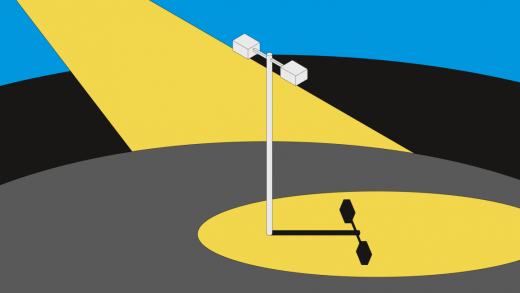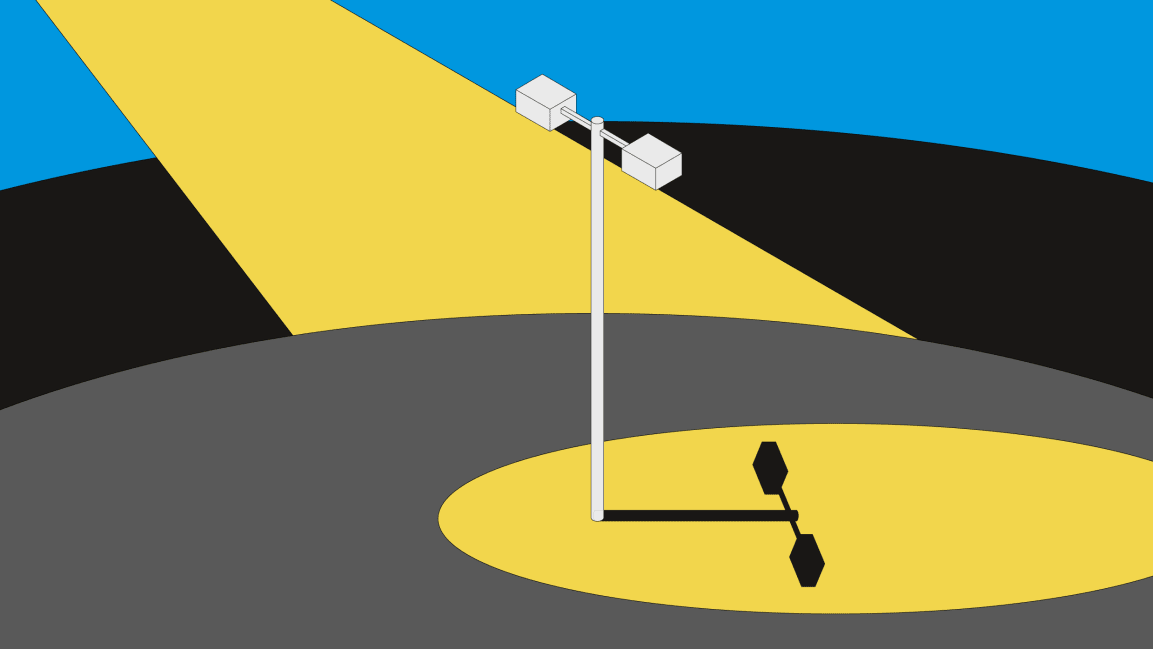These solar, WI-Fi-connected streetlights are replacing ones that were repossessed by the utility company
Highland Park, a 2.9-square-mile city in the Detroit metro area with about 12,000 residents, was the birthplace of the Model T and once home to Chrysler and Ford factories, but began to struggle financially as the area’s auto industry collapsed. In 2011, DTE repossessed the streetlights in a settlement that wiped out the city’s $4 million debt to the energy company. But the city didn’t get any community input or give notice, says Shimekia Nichols, Soulardarity’s deputy director. “A lot of Highland Park residents weren’t aware of what was going on until they saw the poles coming out of the ground.” Soulardarity formed in 2012 with the idea of using solar power to address that lighting need, and it’s been working to raise money and replace the streetlights—and build an equitable energy system for all residents—ever since.
Now, the nonprofit is making headway, installing four solar-powered, Wi-Fi-connected streetlights in Avalon Village, a sustainable eco-village within Highland Park in late June. It will install another in Avalon Village and five more in Parker Village, a once-abandoned elementary school turned solar-powered community resource center, by the end of the week.
Soulardarity has installed a few one-off smart, solar streetlights as it works to replace every light DTE repossessed, but this most recent installation marked the opportunity to install lights on an entire block. The nonprofit estimates it will cost about $9 million to put 1,100 solar streetlights up; smart poles with Wi-Fi, which don’t need to be on every single streetlight, cost another $2,000 to $2,500 per pole.
It’s quite an investment, but to Soulardarity, it’s an investment in the children who need Wi-Fi for remote schooling, the adults who need it for remotework, and the safety of the community. It’s also a step toward energy democracy and energy independence: because the lights are solar-powered, they’re fully off the grid, which means DTE will not own or maintain them in the future. And even factoring in the cost of battery replacements, the solar lights will be cheaper than grid-tied lights, since the city won’t constantly be paying for electricity. Soulardarity also advocates for clean energy programs so that residents aren’t forced to buy any of their own energy from DTE.
Nichols hopes Highland Park can be a model for other neighborhoods and cities to take up community-led solar initiatives. “Hopefully we’ll be able to see a boost and a boom in community sustainability in ways that we haven’t seen with the usual business-as-norm development,” she says.
(27)



